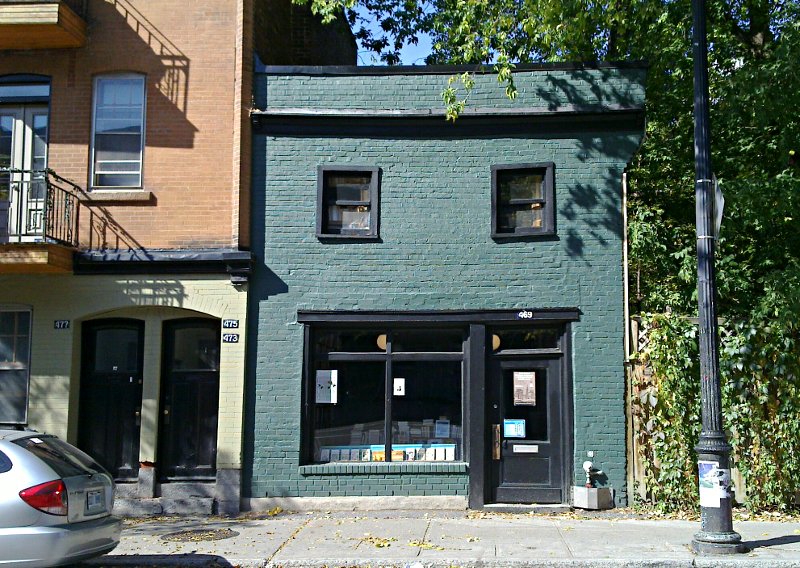Literary publications at McGill and the greater Montreal area are a vital part of our creative community. They allow writers to showcase their most compelling and creative works of prose, and they allow readers to browse through the exciting and diverse voices of their peers. Likewise, literary publications are vital to McGill in particular, as our university lacks a robust fine arts program, leaving McGill writers wondering where to hone in and exhibit their creative writing skills. Publications like The Veg Literary Magazine, The McGill Tribune’s Creative Supplement, and Yolk Literary Journal offer an invaluable resource for students looking to publish or read creative writing, thus advancing McGill’s emerging artistic scene.
The best part is, each of these free, online publications accept submissions from everyone! That means any McGill student, whether a Shakespeare-reciting theatre studies major or a digit-diving physics student, can see their works published in these prestigious literary publications.
1. The Veg Literary Magazine
The Veg is one of the most reputable and prominent literary publications on McGill campus. Its biannual release features the best poems, stories, and photos or visual art that McGill students have authored. Editors at The Veg recognize the paucity of creative opportunities for students at McGill. Team member Lulu Lebowitz says, “McGill has a real dearth of creative platforms from the institutional side of things. The value of The Veg is that people who write or pursue a form of visual art can display their work and be a part of a creative community.” The Veg showcases the best creative work to promote and foster McGill’s developing literary scene.
The Veg will review any submission of up to six poems or 1, 500 words of prose. Lebowitz says The Veg editors want works that have “both a command of form and something within the content that is unexpected.” To read selections in The Veg is to witness McGill student’s boldest poetry and smoothest prose. To be published in The Veg is to increase the visibility of McGill’s evolving artistic scene. Much about The Veg remains a mystery, however. The magazine’s Facebook page flaunts cryptic images of peach rings and alphabet soup, and the current editors don’t know where the name comes from. They wish only to say: “we are not a vegan lifestyle magazine.” Indeed, The Veg is so much more than that.
2. The McGill Tribune Creative Supplement
The McGill Tribune’s biannual Creative Supplement publishes student poetry, fiction, photography, visual arts, music, and videography. Aidan Martin, the Tribune’s creative director, acknowledges that “McGill has a serious lack of creative arts courses.” Because students long for creative outlets, Martin says, “Something like the Creative Supplement is really necessary because it not only gives a platform for students to share what they’ve been working on, but also to encourage people to put themselves out there.”
Work featured in the Tribune’s Creative Supplement contributes to one of McGill campus’ most prominent newspapers and most distinguished creative outlets. A work that pops, according to Martin, is one “that makes me feel something and approaches the story/content in an unexpected way.” The Veg and the Tribune both value the surprising and unexpected potentials of writing. The Tribune just released their fall Creative Supplement for readers to see the extraordinary capabilities of McGill artists and authors.
3. Yolk Literary Journal
Yolk is a Montreal-based literary journal publishing poetry, fiction, visual art, and non-fiction. Yolk and The Veg have started a tradition of Montreal literary journals with names reminiscent of a trendy Plateau brunch spot, although creative director Curtis McRae swears the name was chosen for its “metaphorical potency” and “aesthetic qualities.” Yolk is brand new to Montreal’s literary scene — an example of Montrealers expanding the city’s artistic avenues. Yolk is intrinsically linked to Montreal and aims to reflect the ever-changing nuances of the city. The In-Transit series, for example, features works that (literally) delve into the sounds and sights of Montreal’s metro system. Managing editor Chelsea Moore says the series aims to “situate ourselves in the heart of the city and seize the experience of each burrow through a Montrealer’s eye.”
Editors at Yolk publish writing that exhibits a command of language, but also evokes powerful images, feelings, and thematic depths. Luckily, the team at Yolk has prepared a workshop to teach these qualities of excellent writing. Poets Endre Farkas and Carmine Starnino will lead an online seminar on November 28 to discuss winning writing techniques and help participants cultivate a unique style. The workshop’s sign-up is still open. Editor-in-chief Josh Quirion says the goal of the event is to “provide the ingredients [of writing], not the recipe.” Yolk is accepting submissions from now until January 1, 2021, allowing for McGill students and Montrealers to show off their best creations.
*
McGill students have circumnavigated the university’s lack of academic fine arts programs and found numerous ways to publish, curate, and appreciate creative writing. Likewise, these three publications are just part of Montreal and McGill’s growing artistic and literary scene. Other literary publications include the McGill affiliated Scrivener Creative Review and the Montreal based Carte Blanche. Poets searching for an open-mic should check out the Mcsway Poetry Collective, and English undergrads hoping to publish academic papers should explore The Channel.
This semester has challenged McGill students to find new ways to feel a part of a community and express their inner sensitivities. Funneling COVID-19-induced stress into creative and meaningful writing is, in the opinion of this magazine, a much better idea than fight club. With these literary magazines, among others, every student has a chance to create a valuable piece of writing and contribute to McGill and Montreal’s dynamic and evolving literary scene.







